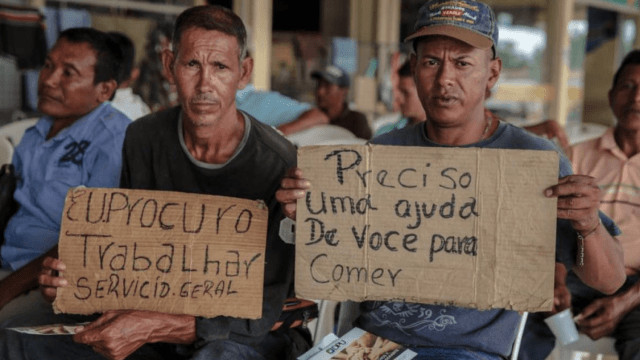Tens of thousands of Venezuelans have been crossing into Brazil in an attempt to find jobs amid the country’s economic collapse. Many come to Brazil just to buy food and medicine before going back, but many others stay, sleeping in tents, begging on the streets, and washing car windshields. It is these migrants — desperate for income — who are most vulnerable to traffickers.
Thomson Reuters Foundation reports:
Desperate to find jobs and earn money to feed their families, it is these Venezuelan migrants who are at high risk of being trafficked into forced labour and prostitution.
“Venezuelans are escaping in the hope of a better life and to get alternatives,” said Euridice Marquez, crime prevention and criminal justice officer at the U.N. Office on Drugs and Crime (UNODC).
“When you are in that situation, you are really prey to any kind of exploitation and abuse,” she said.
With an influx of vulnerable migrants, Brazil’s Amazon border states have become human trafficking hotspots.
The male migrants are exploited as ranch labourers for little pay and the women as sex workers or domestic helps.
Brazil’s public defender’s office (DPU) has offered legal support to Venezuelan migrants since 2015 when many were found to be victims of labor exploitation on Brazil’s large farms.
Fernanda Fuentes, a UNODC programme analyst, explained that local ranchers looking for cheap labor look to hire Venezuelan migrants, including members of Venezuela’s indigenous Warao community, driving through border towns to pick up migrant workers. The ranchers promise to pay 1,000 reales ($315) per month. The migrants are then driven for hours to rural farms, locations unknown to the men, and they are only given two bowls of rice to eat and have to drink from streams.
After a month’s work, the ranchers drive the men back to the border town but only pay them half of what they were initially promised, claiming that they had to take deductions for food and living expenses. Yet ranchers may not even think they’re doing anything wrong.
“Sometimes recruiters and farmers think that they are actually helping … giving them something to eat, some work .. it’s not recognizing that people have rights,” Marquez said.







Freedom United is interested in hearing from our community and welcomes relevant, informed comments, advice, and insights that advance the conversation around our campaigns and advocacy. We value inclusivity and respect within our community. To be approved, your comments should be civil.
big banks create refugees everywhere: werk of devils.
well, as blankfein noted, “back to doing god’s werk.”
This is only one side of the coin! Venezuelans are crossing over into Guyana and commiting serious crimes such as armed robberies, murder and recently there’s a group running an intimidation “protection” racket where the Guyanese miners who don’t pay up are killed!